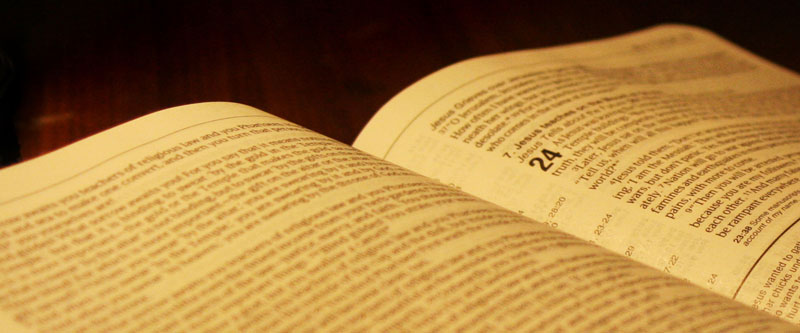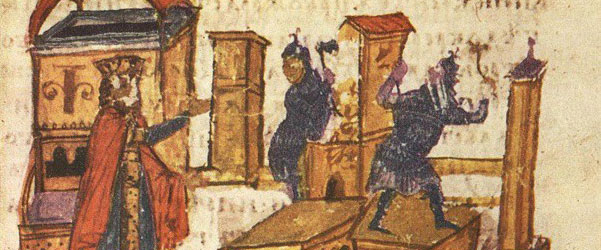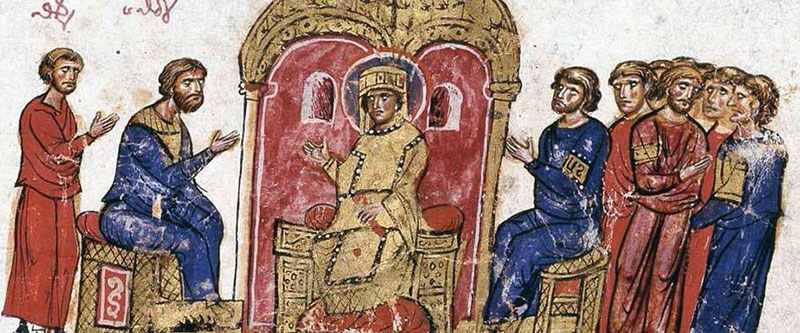“14 For all who are led by the Spirit of God are sons of God. 15 For you did not receive the spirit of slavery to fall back into fear, but you have received the Spirit of adoption as sons, by whom we cry, “Abba! Father!” 16The Spirit himself bears witness with our spirit that we are children of God, 17 and if children, then heirs—heirs of God and fellow heirs with Christ, provided we suffer with him in order that we may also be glorified with him.” (Romans 8:14-17)
The doctrine of adoption is often not given the attention it deserves. Prominence is given to other doctrines of grace, such as man’s justification or sanctification. And yet understanding the Christian’s adoption in Christ is crucial to a joyful and thankful life. I want to explore this doctrine, and use the text above as the starting point. Before getting into those specific verses it is imperative to come to terms with Romans more broadly speaking.
Paul has given his thesis in Romans 1:16, when he says, “For I am not ashamed of the gospel, for it is the power of God for salvation to everyone who believes, to the Jew first and also to the Greek.” Paul spends the next several chapters examining this gospel message more broadly that the Church often does. In chapters 1-3 he gives a jarring description of the sinfulness of man and his guilt before God his Creator. In chapters 4-5 he counteracts that dismal message with the reminder of God’s promise that salvation comes not by man’s works, but through faith in Christ alone. In chapters 6-7 he emphasizes the call to Christian holiness, but with a realistic acknowledgement of the struggle that comes along with it. Thus, the movement in the big picture of Romans is from man’s sin to God’s mercy to man’s holiness. That same progression is seen on a smaller scale in chapter 8.
In verse 1 Paul begins by announcing that there is “no condemnation for those who are in Christ Jesus.” Condemnation is to be expected for sinful man, but those in Christ are spared. In verses 12-13 Paul follows that up by describing the changed life in Christ as putting “to death the deeds of the body.” So there is a contrast. On the one hand, the Christian is saved in Christ, but he is called to a changed life. The Christian cannot simply throw up his hands with a wry smile saying, “I cannot obey, but Christ has done so perfectly for me. I have His righteousness and therefore I am forgiven. There is nothing more to it.”
In Romans, the message is urgent. The first three chapters have pulled the fire alarm with its description of man’s sin. And despite the calls to holiness in light of Christ’s saving work, Paul’s cry in Romans 7:24 resonates with the Christian. “Wretched man that I am! Who will deliver me from this body of death? Thanks be to God through Jesus Christ our Lord!” It is the grace of God that reconciles to man, but grace is not simply a phrase to be spoken. It is a deep, multifaceted gift from God.
Communion of Grace
Westminster Larger Catechism #69 introduces the notion of the “communion in grace” that believers have with the Lord which includes justification, adoption, and sanctification. These come to the Christian because they are united to the Lord through faith. And these facets of the Christian’s communion in grace with God must be held in balance to ensure the Christian experiences richness in their relationship with the Lord.
First, consider God’s grace in justification. Romans has described this doctrine in some detail in chaptes 4-5. Justification deals with man’s salvation in the legal sense. The guilty sinner stands before the judgment seat of Almighty God. That is the legal setting. Justification is the act in which the Righteous Judge pardons the sinner and declares him righteous. What a glorious truth. However, a person who lives before the Lord with an eye on justification only will relate to God strictly on legal terms, which is neither personal nor warm.
Second, consider God’s grace in sanctification. In chapters 6-7 of Romans the Christian has been called to turn away from sin unto obedience. That process is induced by grace but from man’s perspective certainly involves a sense of effort. That is true not only in Romans, but in other parts of the Bible as well. For example, in Hebrews 12:14 God exhorts His people to “Strive …for the holiness without which no one will see the Lord.” In Philippians 2:12 they are called to “work out,” their own salvation in fear and trembling. 2 Peter 1:5 adds “make every effort to supplement your faith with virtue.” Finally Colossians 3:5 tells them to “Put to death therefore what is earthly in you.” God in His grace equips the Christian for that spiritual battle, which is a wonderful truth. But if a Christian only relates to God in terms of his sanctification he will look at his life as a series of tasks and improvements to be done.
Justification held out of balance can be legal and impersonal. Sanctification held out of balance tends to make a man task oriented. But what if the Christian relates to God with these things put together? It may not improve things. The end result may be relating to God as a legally minded, impersonal taskmaster with a list of things to do. Adoption is the key missing ingredient.
Father, not Judge
Consider God’s grace in adoption. Adoption saves the Christian from relating to God in exclusively legal and/or performative terms. In Romans 8:14 it says, “All who are led by the Spirit of God are sons of God.” That marks a significant relational change for a man who before was guilty of sin. A person should relate to God as Judge only if he is outside of Christ. For those who have received their justification by faith, God is no longer judge, but Father.
Not everyone has the same experience in family, but people recognize what a family should be. In healthy homes children and parents do not relate to each other by citing contracts and ratifications of agreements. Instead, they relate to each other in love. Parents set boundaries for their children out of love, and children in turn obey their parents out of love. It would be absurd to see a family where the father is treated as a judge.
Of course, judges often do have families. And in their professional capacity it is normal for them to wear a long robe and to be addressed as “your honor.” However, if a judge were to behave that way at home, it should raise some eyebrows. Adoption is that Christian doctrine that shows the Christian’s relationship to God is altered from a legal one to a familial one.
Since adoption rightly frames the Christian’s relationship to God, Christians should know that they are adopted. Romans 8:16 explains that the Spirit’s testimony gives certainty in this regard: “The Spirit himself bears witness with our spirit that we are children of God.” That verse may seem a little subjective, but 1 John provides clarity. The testimony of the Spirit comes in the following ways:
First, the response to the gospel. 1 John 2:3 says, “And by this we know that we have come to know him, if we keep His commandments.” That means that a person who knows the gospel, will respond with a pursuit of holiness. Even if struggles remain, to pursue the commandments is a testimony of the Spirit about adoption. And God directs His children and calls them to walk this way and not that one.
Second, the confession of the gospel. 1 John 4:2 says, “By this you know the Spirit of God: every spirit that confesses that Jesus Christ has come in the flesh is from God.” The testimony of the Spirit in not just one of understanding but also a desire to profess Christ.
Third, the understanding of the gospel. 1 John 5:20a says, “And we know that the Son of God has come and has given us understanding so that we may know him who is true…” And more than that, from John’s gospel it is clear that an understanding of the truth comes from God the Holy Spirit. John 16:13a says, “When the Spirit of truth comes, he will guide you into all the truth.” Anyone who understands the mysteries of the gospel and has a knowledge of Christ is displaying the work of the Holy Spirit.
In moments of doubt a Christian may say, “I don’t obey as I should.” And that most certainly will be true of anyone at times. But Romans 8:16 says, “we are children of God.” (emphasis mine). Yes, the Heavenly Father corrects sin. But He does so because He desires that His children would turn away from sin, and love the good instead. That truth should not lead to a spirit of slavery of fear, but cause the children of God to flee to Him for safety.
The Inheritance of Christian Sons
Christians are adopted sons and daughters, which means they have access to all the rights and privileges of a child of God. In fact, Romans 8:17 notes three things the Christian shares with Christ in adoption: First, a shared inheritance (they are “fellow-heirs”); 2. Second, a shared suffering (they will “suffer with Him”); and, 3. Finally, a shared glory (they are “glorified with Him”). Believers share all of these with Christ.
To share in Christ’s suffering means forsaking self and following the Lord. At a minimum, when the world says “yes”, but God’s word says “no” the Christian follows. That is the extent of suffering asked of the North American Christian. However, there are also brothers and sisters in other places who suffer far more acutely for belonging to Christ. They face persecutions of various degrees ranging from estrangement from family (which may happen in the United States too), to forfeiture of property or freedom, or even loss of life. To be glorified with Him is to be perfected in heaven with the Lord as is described in Revelation 21. But most significantly sharing in Christ’s inheritance is to receive eternal life.
Implications
The doctrine of adoption is a great benefit to Christians. Sins are forgiven, and holiness is pursued, but in the context of a loving Heavenly Father. Therefore think of your communion of grace with God in the following ways:
- Be assured of God’s grace in salvation. Romans gives a glorious picture of how God reconciles His people to Himself. Imagine the sinner standing in the defendant’s box. He is dead in sin and trespass. All the evidence is piled up and his face betrays his guilt. And instead of a guilty verdict God’s executes His just sentence on Christ instead. All the wrath of God over the sins of His people is poured out on Jesus on the cross, and so He welcomes His sons and daughters.
- Live as grateful children of God. For a young child, their parents are their whole world. When they learn a new skill they look for affirmation from their parents, exclaiming “Look mom, look dad!” Why do they want that attention? Because, more than anything, they want their parents’ approval. They do not need to motivate themselves to seek or express affection. They do not have an internal dialogue: “Oh man. I’ve got to make another card for mom today. Better get the production rolling.” They want to make cards for their parents. And that should be the heart of the Christian too when it comes to His heavenly Father. That is the lesson learned from John 14:15 which says, “If you love me you will keep my commandments.”
- Remember, God is your Father. In my time as father I have received many cards and pictures from my children. The artwork is questionably, the grammar is almost non-existent, and the spelling is definitely not good. Sometimes it was not even clear to me what I was looking at. But never did it cross my mind to send the artwork back for revisions and edits. And God’s love is far more tender than any love a human father may have. God does not desire to judge you, Christian. He loves you with a perfect love.
Pastor Geoff Gleason
Cliffwood Presbyterian Church









